Learn what the title status of your car means and what it might mean for you financially, whether you’re looking to sell your car, buy a car, or use your title as collateral for a title loan.
If you've ever checked your vehicle's documents and wondered, "What does my title status mean?" you're not alone. Most people think of a car title as just proof of ownership, but there's more to it than that.
Your car’s title status carries important financial and legal implications that many drivers overlook. In this blog, we’ll dig into the deeper meanings behind different title statuses and explore how they can affect everything from loan eligibility to reselling your vehicle.
Understanding Title Status: Not Just a Paper Trail
A vehicle title is a legal document that proves ownership. However, the “status” of that title reveals key details about the vehicle’s history, condition, and even financial entanglements.
For instance, a “clean” title is often seen as ideal, but alternate statuses like “rebuilt,” “salvage,” or “lien” status convey more complex information that is important to understand before buying, selling, or using the vehicle as collateral.
Let’s look at some common title statuses and what each one might mean for you:
Clean Title: More Than Meets the Eye
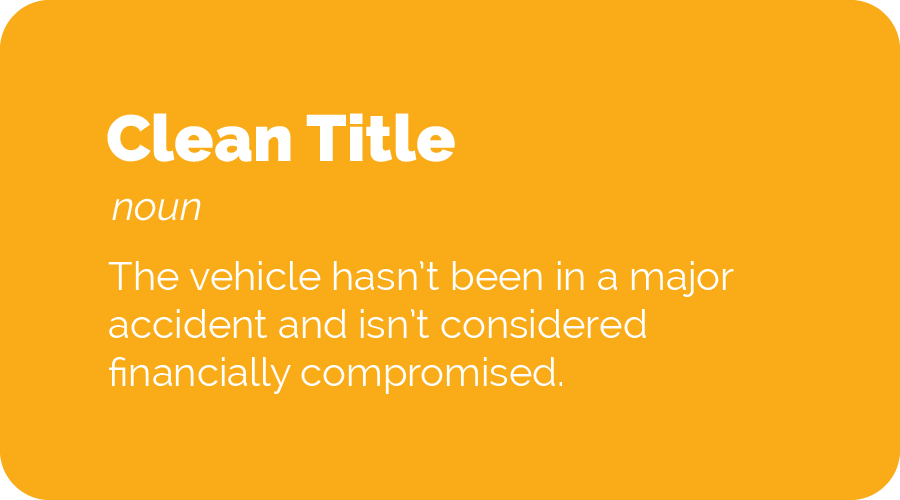
A clean title usually means the vehicle hasn’t been in a major accident and isn’t considered financially compromised. But that doesn’t always tell the whole story. A vehicle could have experienced mechanical issues or minor accidents that were repaired privately without an insurance claim.
This wouldn't necessarily appear on the title record. So, while a clean title is favorable, it doesn’t guarantee a spotless history. Always pair title status with a detailed vehicle history report for a fuller picture.
Salvage Title: Cost Savings or Hidden Costs?
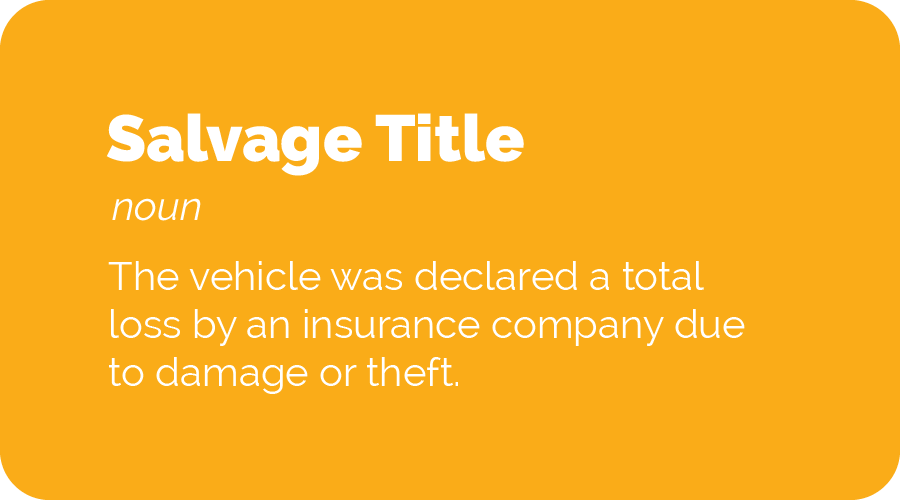
A salvage title means the vehicle was declared a total loss by an insurance company due to damage or theft. Some buyers see this as a great opportunity to save money since salvage vehicles often sell for considerably less than clean-titled cars.
However, many lenders will not finance salvage-title vehicles, and insurance can be harder (and more expensive) to obtain. If you're thinking about taking out an auto-related loan, such as a title loan, a salvage title may reduce your options or limit how much you can borrow.
Rebuilt Title: Roadworthy, But Limited Options
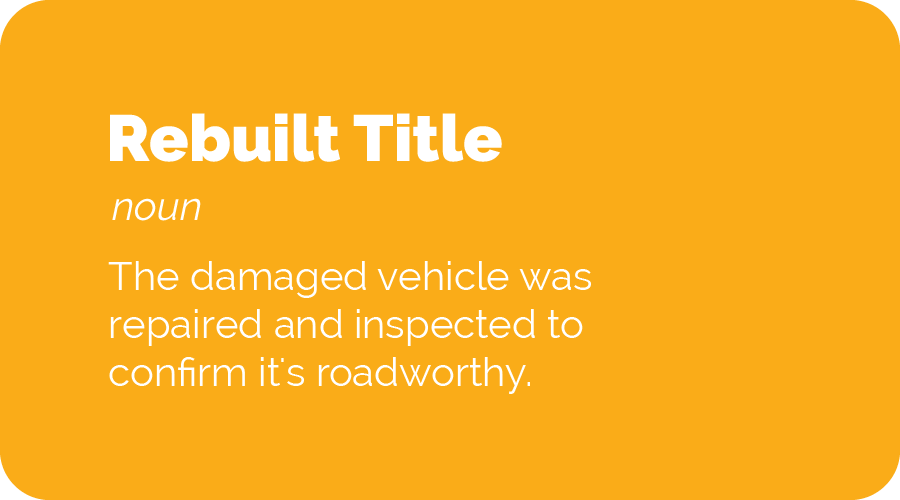
A rebuilt title is assigned after a salvage vehicle has been repaired and inspected to confirm it's roadworthy. While this status tells you the car is functional again, it still carries limitations similar to a salvage title.
Rebuilt titles can affect the resale value, insurance coverage, and loan eligibility. Some states even have restrictions on titling or registering rebuilt vehicles. So, if you’re planning to use your vehicle for a personal loan or title loan, it’s worth checking how your state handles rebuilt titles.
Lien Title: What You Need to Know Before Using Your Car as Collateral
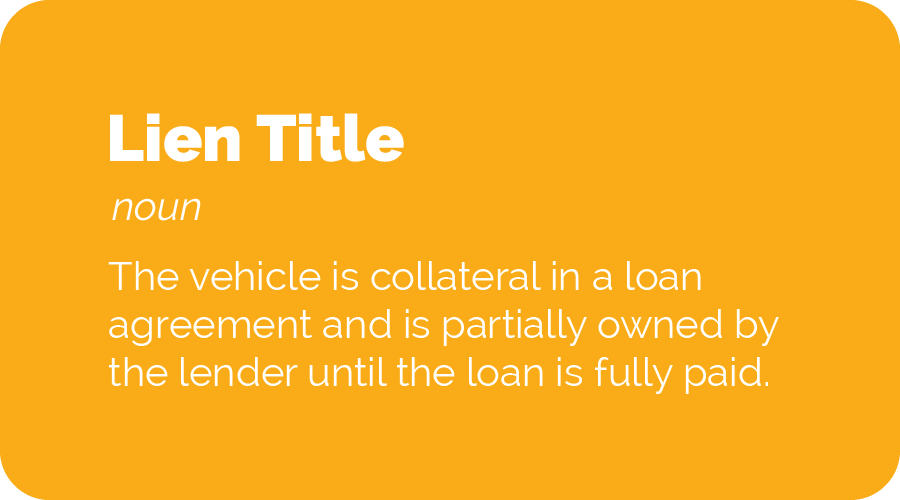
A lien title doesn’t refer to the vehicle’s physical condition, but it tells you who legally owns it. If your title has a lien, that means you’re still paying off a loan and the lender holds partial legal rights to the vehicle until the loan is fully paid. Trying to sell or use your vehicle for a new loan while there's an existing lien can lead to complications.
For example, if you're considering a title loan from a company like Check City, your car title must be clear of any liens. You’ll also need to meet other criteria like showing your government-issued ID, proof of income, and an active checking account. In Utah and Nevada, Check City’s physical stores offer title loan services, and you get to keep your vehicle while repaying, a key benefit of Check City title loans.
Electronic Titles (e-Titles): An Emerging Factor
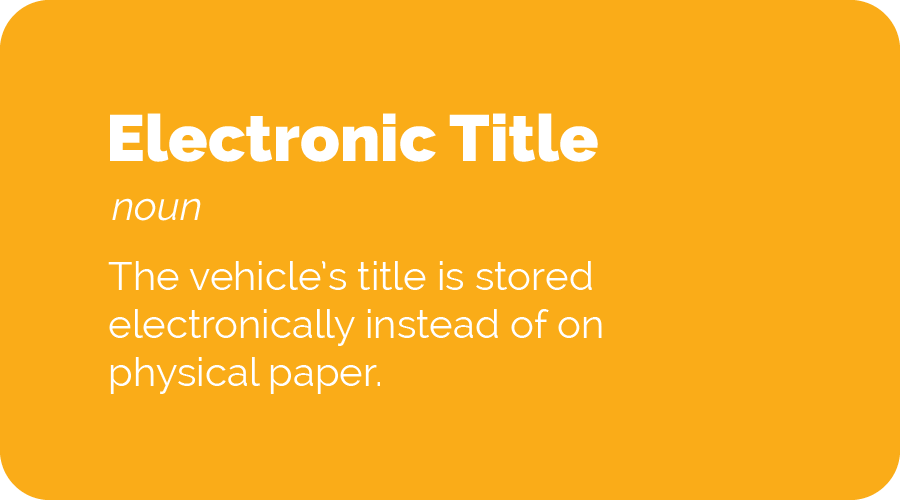
In some states, vehicle titles are now stored electronically instead of on paper. While this adds convenience, it can also create confusion around title status and ownership transfers. If you're moving between states with different e-title policies, you may need to convert or request a paper version for certain transactions, like loans or private sales. This adds a layer to the question of “what does my title status mean?” in today's digital world.
Digital title management can also impact the speed of funding for title loans. While companies like Check City aim for fast processes, any delay in confirming title status, electronic or otherwise, can impact timing. Be sure to have documentation ready and stay informed about your state’s approach to title storage and verification.
How Title Status Affects Financial Flexibility
Title status plays a surprising role in your financial toolbox. Here’s how:
- Loan Eligibility – Whether you’re applying for a personal loan, installment loan, or title loan, your vehicle's title status could limit your ability to borrow. For example, a lien or salvage title might be disqualifying.
- Resale Value – A clean title typically yields higher resale value, while other statuses may require upfront transparency or reduced prices.
- Insurance Rates – Some insurers do not cover rebuilt or salvage vehicles, or they may offer limited policies at higher premiums.
- Legal Disclosures – If you're selling a car, you're often legally required to disclose its title status. Failing to do so can lead to penalties or voided transactions.
- Future Flexibility – If you're planning to use your vehicle in a financial emergency, like applying for a title loan, then proactively ensuring a clean and lien-free title can make that process much smoother.
Check City: Clear Titles Help You Move Faster
At Check City, we offer title loans that allow you to keep driving your vehicle while you pay. But it's important to understand your vehicle's title status before applying.
Visit one of our Check City stores in Utah or Nevada, where you’ll need to provide a government-issued photo ID, proof of income, vehicle title (in your name), and other standard information.
Remember, title loans are short-term solutions and should be used responsibly. Loans are subject to approval, and if approved, repayment terms will vary. Read all terms clearly and consider speaking with a credit counselor for long-term financial planning support.
Key Takeaway
So, what does your title status mean? It’s far more than a line on your registration papers. It could affect your next loan, your insurance, or even your right to sell your vehicle.
Take the time to understand your status, check for any liens, and review whether your title is clean, salvage, or rebuilt. With this information, you’re better prepared to navigate financial decisions, handle emergencies confidently, and when needed, find flexible borrowing options through responsible lenders like Check City.
If you're considering a title loan or want to learn more about your options, visit www.checkcity.com/title-loans for full details.
This content is for informational purposes only and does not constitute financial or legal advice. Loan products, terms, amounts, rates, fees, and funding times may vary by state and applicant qualifications. All loans are subject to approval and verification under applicable law. Check City is a licensed lender in each state where it operates. Loans are intended for short-term financial needs only. Please borrow responsibly.


